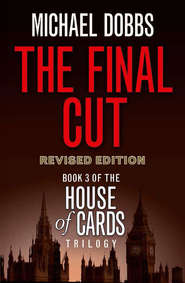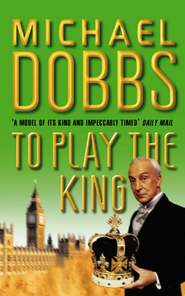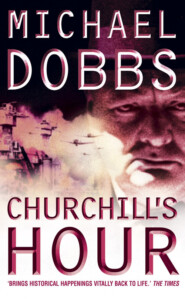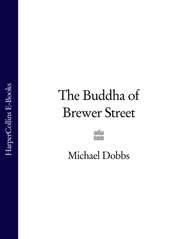По всем вопросам обращайтесь на: info@litportal.ru
(©) 2003-2024.
✖
Winston’s War
Настройки чтения
Размер шрифта
Высота строк
Поля
‘But you’d sit with the Duchess? Support her causes?’
‘Well, she has a fair few of those, to be sure. Not all of them to my taste.’
‘Nor to the taste of others, McCrieff. Including the Prime Minister.’
‘Strange, so strange the causes she adopts,’ Wilson added. ‘Once heard her make a speech about female circumcision amongst the Kikuyu in Africa. Took up hours of parliamentary time on it, refused to give way. Quite extraordinary performance.’ He was shaking his head but not taking his eyes for a moment off McCrieff. ‘Not, of course, that as a civil servant I have any views on these matters, but personally and entirely privately …’
They were interrupted when a claret-coated club steward produced fresh drinks and fussed around the fire, stoking it back to life and propelling a curl of coal smoke into the room. McCrieff was glad of the opportunity to think. He was a laird, a Scottish farmer, not a fool. He had been invited to dine by two men who knew he had considerable influence in a constituency where the MP was one of the most troublesome members on the Government back benches. He’d guessed they wanted to talk about considerably more than fishing. He swirled the caramel liquor in his glass, where it formed a little whirlpool of alcohol. Suddenly it had all become mixed with intrigue. There was a danger he might get sucked down.
‘Yes, speaking personally, McCrieff,’ Ball picked up the conversation, ‘privately, just between the three of us – how do you feel about the Duchess?’
The revived firelight was reflecting from Ball’s circular spectacles. His eyes had become two blazing orbs, making it seem as though a soul-consuming fire were burning inside. This was a dangerous man.
‘Gentlemen,’ McCrieff began slowly, stepping out carefully as though walking barefoot through a field of broken glass, ‘one of you is the most powerful man in the party, the other the most significant man in Government next to the Prime Minister himself. And I am a man of some political ambition.’ He paused, holding in his hands both opportunity and extinction. Time to choose. ‘How would you like me to feel about the Duchess?’
The lights burned unusually late on the top floor of the Express building in Fleet Street. It was well past the dining hour. A group of five journalists, all men, mostly young, had already been closeted in the boardroom for three nights that week, and another night beckoned. The work was tiring and the banter with which they had begun had long since passed into a bleak determination to finish the job. They had been provided with all the tools – sheaves of writing paper, envelopes, twenty-seven separate lists of addresses. The lists had arrived by courier marked for the attention of the deputy editor, who had removed the covering letter and any trace of their origins.
They wrote. Some used typewriters, the others wrote by hand. A total of more than five hundred letters, many purportedly from ex-servicemen, intended for opinion-formers within the twenty-seven constituencies. As the week had passed, any sense of restraint had dimmed, their language had grown ever more colourful, the metaphors more alarming.
The Bolshies are regicides. Is that what you want? I would hazard the conjecture that the Germans, the most efficient fighting machine on this earth, would go through the rag-bag of Reds like a hot knife through butter. Take care you are not standing in the way when it happens!
It was the season for mud and muck, it was inevitable that some of it should spread out and stick. And so they toiled, disturbed by nothing more than the chiming of the clock, the drumming of typewriter keys, the scratching of nibs, the occasional flooding of a handkerchief – one of them had been dragged from his sick bed despite the protestations of his wife. Death and misery were much on his mind.
If you vote for the Duchess there will be war, and your sons will all be killed, like mine were in the last war, butchered by German steel. Can you bear that on your conscience?
There were alternative strategies in use. One of his colleagues preferred to inspire by adulation:
Mr Neville Chamberlain is a saint. He has saved us. There is war in China, in Abyssinia, in Spain. Hundreds of thousands have already died. If Britain goes to war, that will surely be our fate. Yet even though the Prime Minister is an elderly man he has thrown himself into his duties, flying three times to Germany though he had never before flown, hurled himself into the breach, unsparing of his time, uncaring of his health and safety. His one ambition has been PEACE. Peace for this time, peace for all time. He is surely amongst the great men of all time. That is why I will do anything to support him. I trust you will, too, by letting your MP know [underlined twice, in squiggly waves] of the strength of feeling of the ordinary people in this country.
He signed it Mrs Ada Boscombe.
It was ten minutes or more after the clock had marked nine when the doors of the lift opened. Two butlers emerged, dressed in tails and stiff wing collars, bearing substantial silver trays. On one was heaped a steaming tangle of brick-red lobsters, all claws and alarmed eyes, accompanied by a large dish of clear molten butter and surrounded by a plentiful garnish of sliced cucumber and tomato. The other tray bore three bottles of chilled Pol Roger champagne and five crystal glasses.
‘With the compliments of ‘is Lordship,’ the first butler informed them, placing his tray on the sideboard, producing knives, forks and linen napkins like a magician from deep pockets inside his jacket. ‘And ‘e says to make sure you bring the silver trays back.’
They had come, in unprecedented numbers. Every seat was occupied, every corner crowded. The Duchess had remarked on the numbers, and on the fact that many of the faces seemed unfamiliar to her, but her agent assured her that apart from a handful of journalists they were all paid-up members of the association. ‘The times are very political, Your Grace,’ he had explained. What he declined to tell her, and what she was never to know, was how many of those fresh faces had had their membership dues paid in the last few days by William McCrieff. As McCrieff had put it to him, many ordinary voters in the constituency had been galvanized by the events of recent weeks and he had persuaded them to join, urged on by great issues such as war and peace – and, the agent suspected, by an extra pound in their pockets for their trouble in attending a political meeting, not to mention the promise of free hospitality afterwards. Even if many of those gathered together had been members for no more than six days and some for no longer than six hours, there was nothing in the rules to prevent such a show of interest and enthusiasm. In any event it was bound to be a meeting of exceptional significance for it had been convened to decide whom they should choose as a candidate to fight the next election. And the agent, like so many members loyal to the causes of appeasement and a comfortable life, found the Duchess about as comfortable as an ice storm in August. She was always lecturing, hectoring. Not like McCrieff. His methods were different. A quiet word, a dram or two, and the business was done. A good party man, was McCrieff, unlike the Duchess. She not only had her own opinions – so many of them – but insisted on sharing them. A grave fault in a politician, the agent reckoned, perhaps a mortal one. Anyway, the chairman had just called the meeting to order; they were soon to find out.
They had been to see George Bernard Shaw’s Man and Superman at the Old Vic – a splendid performance, she’d thought, with Valerie Tudor and Anthony Quayle, but he found it a preposterous play, like most of the stuff the old man produced. All those Left-wing ideas tangled up in his bloody beard, which were then scraped off like yesterday’s lunch. He thought Quayle’s role as Tanner had been absurd, and played in the same manner – all this guff about woman being the pursuer and man the pursued. But Anna Maria had warmed to it, said it was splendid and up-to-date, seemed to enjoy wrapping herself in theatrical fantasy. So he indulged her, and for once bit his tongue.
He hadn’t wanted the evening to end – he thought about inviting her back for a drink at his home in Lord North Street, which was near at hand, but he didn’t know her well enough and was afraid it might sound predatory and she would say no. He didn’t know how to deal with rejection from women – his mother had always treated him as nothing better than an inconvenience, and after he had left the family home he had made it a rule in his carefully constructed life never to put himself into a position where rejection might be possible. Yet he did not want to simply say goodnight. So he had suggested that they not drive all the way home, but stop on the other side of the park from where they could walk the last stretch to her front door. She had accepted with a smile.
He had deliberately taken the long way round, leading her through Hyde Park until they had arrived at the Serpentine where the rowing boats were tied up in a miniature armada and little waves lapped at the edges of the ink-black pond. She looped her arm through his, clinging tighter than was strictly necessary. Perhaps he should have invited her back for a drink after all.
‘So do you think there will be war, Bendy?’ She had given him a nickname. He’d never had a nickname before.
‘Hope not,’ he replied, not wanting to alarm her.
‘But your Mr Churchill says he thinks there will be.’
And he found himself irritated. Churchill was his hero, his political master, yet Bracken was growing to resent the manner in which others treated him as little more than an adjunct to the elder statesman, and no one took him more for granted than the old man himself. ‘Don’t know what’s going on with Winston. Very peculiar,’ he muttered. ‘He – perhaps I shouldn’t be telling you this, but – well, he’s got money problems and asked me to help him. To see if I could find a backer, someone to provide him with a loan to get him through. So I’ve been running around all over London making enquiries and then, just yesterday, he tells me to stop. No explanation. No thanks. Just –’ He waved his hands in dismissal.
‘Great men are like that. Hope you won’t be like that when it’s your turn.’ She held him still tighter. ‘Uncle Joe’s like that. Bit like Mr Churchill, I suppose. Do you think he might ever become Prime Minister?’
So they walked, disturbing the sleeping ducks, exchanging confidences in a manner that was unusual for Bracken with a woman. Churchill’s money problems, Churchill’s ambitions, Churchill’s drunken son and his protective wife. Always Churchill. Anna sensed that Bracken didn’t care for Churchill’s wife and much preferred the company of his disreputable son. Bracken protested that Churchill still had plenty of time to become Prime Minister – why, Gladstone had been eighty, he insisted – but she thought he protested too vigorously on the matter, as if trying to shout down his own doubts.
And wasn’t it strange, he said, that the two of them should be walking arm in arm while their two masters were usually at each other’s throats.
‘Oh, you mustn’t mind Uncle Joe, he’s always mad at something. Always plotting, always a little angry. He doesn’t think much of the State Department – calls them a bunch of cookie-pushers – and gets quite furious about the White House. Think he’d like to be President himself, one day, just like Mr Churchill. They’re a lot alike in some ways.’
‘If we value our personal safety I suggest we don’t mention it to either of them.’
They stopped in the shadow of a tree, looking at the distant lights of Knightsbridge that sparkled off the water and seemed to find reflection in each other’s eyes.
‘Don’t worry about war, Anna,’ Bracken said, tried to reassure her, holding her shoulders, playing with the ends of her soft hair. ‘You Americans worry too much, you go funny at the very thought of war,’ he chided. ‘Why, just days ago, that fellow – you know, Orson Welles – makes a radio broadcast about “The War of the Worlds” and half the eastern seaboard of America goes into a panic because they think the Martians are attacking. You’re not very good at war.’
‘Didn’t do too badly in the last one,’ she reminded him softly. And she kissed him.
Almost before he knew it their bodies were pressing up against each other, their tongues searching, his fingers, too, through the buttons of her fur coat and on her breast, but she drew away. Suddenly he was gripped by shame. He heard his mother whispering in his ear, tormenting him, accusing him of being no better than a prowling dog, and he wanted to scream at himself for being such a fool. ‘I’m so sorry,’ he mumbled, preparing to flee, but she held him.
‘Bendy, no – it’s me that’s sorry. I’m so very fond of you,’ she whispered. ‘It’s just that – I’ve got too much Irish and Catholic in me, it makes me feel so, so – guilty. You wouldn’t understand.’
Understand? He could write the entire encyclopaedia. Of course he understood. Unlike hers, his Irish Catholic upbringing was entirely authentic. A mud-roofed hut in Tipperary rather than a New England mansion. With dirt floors instead of marble, and only one room. Lying awake, listening to his parents behind the curtain surrounding their bed, his father’s ferocious grunts, her pleas for him to be quieter, and more gentle. And always afterwards, while his father snored, his mother prayed, begged that she would have no more children and be released from the hell of her life. Guilt? His very existence was a matter of guilt, of sin, of suffering, and the lesson had been beaten into him every day at seminary school until he had run away from it at the age of fifteen. But it always came back to him, every time he heard a woman pray, or every time he thought of sex.
So, yes, Anna Maria, he knew all about guilt.
Which was why he didn’t want anything more to do with the Irish, why he’d tried by all sorts of invention to scrub any lingering bit of Irishness from his voice and his soul, one of the many reasons why he hated Bernard Shaw. Yet Anna Maria reminded him of Ireland every time he looked into her pale green eyes. He didn’t even like women – at least, not the hairy, scratchy, unpleasant women who were the sum total of his sexual experience, who smelt so strange and who demanded more money afterwards – yet he was already counting the moments before he could see this woman again. For Bracken, image was everything, yet here he was standing under a tree in a public park with a handful of nipple and a girl almost young enough to be his daughter. He’d never wanted to share his life with any woman, largely because his life was such a fabrication that it wouldn’t stand up to any sustained scrutiny, yet suddenly he was breaking every rule in his book.
That’s when he came to the conclusion he had fallen in love.
‘You’ve gone too far this time. Too wretchedly, damnably far!’
And they had thought they were bringing him the best news of the day.
As soon as they had knocked on the door of the Cabinet Room, Ball and Wilson sensed that their own feelings of elation were misplaced. ‘What do you want?’ Chamberlain had demanded imperiously, not taking his eyes from the letter he was writing.
Another of those endless missives to his sisters, they decided. He wrote to them in astonishing detail, not only of the facts of his Government but of his ambitions and aspirations, and also of his fears. For him these letters were a cleansing process, like the bleedings insisted upon by a mediaeval physician, except that in his letters he bled feelings and soul. Sometimes the sisters knew more than even Ball and Wilson, and always more than his wife.
‘News from the front, Neville,’ Ball exclaimed, moving into the room.
‘Which of the many fronts that seem to engage my attentions?’ the Prime Minister responded. He was always like this when he was tired: overbearing, sarcastic, short. They had learned to ignore it.
‘In their manifold and great mercy, our friends in the frozen north have decided not to retain the Duchess as their candidate at the next election,’ Ball continued.
Still Chamberlain did not look up. There were livid red spots high on his cheeks. He had just been told that the furniture he and his wife had ordered for the new residence at the top of Number Ten would not be arriving for another two months. Delay upon delay. The incompetence was scarcely believable. How was he supposed to secure the peace of Europe when he hadn’t got anywhere to store his clean shirts? He was going to visit Signor Mussolini, who normally appeared in public covered in gold braid. Would the British Prime Minister have to arrive looking like some agricultural worker? ‘If this is democracy, I sometimes wonder why we bother,’ he muttered.
‘Neville, this is a triumph of democracy,’ Ball protested.
‘What is?’











